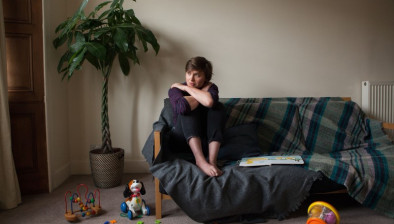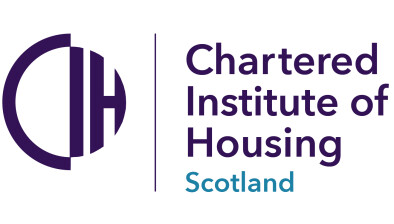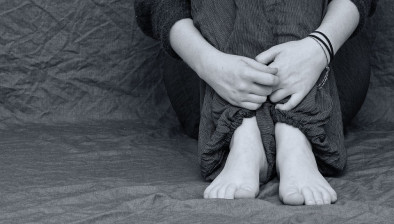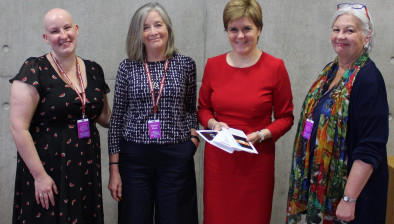Domestic abuse charges reach five-year high

Alison Di Rollo QC
Domestic abuse charges have reached their highest figure since 2015-16, the Crown Office & Procurator Fiscal Service (COPFS) has revealed.
The report Domestic abuse and stalking charges in Scotland 2019-20 showed that there were 30,718 charges reported in 2019-20 related to domestic abuse. This is the highest number reported since 2015-16 and is 5.7% higher than the number reported in 2018-19.
The vast majority of charges identified as being related to domestic abuse are prosecuted. An initial decision was made to proceed to court with 92% of charges in 2019-20, compared to 85% in 2013-14.
The most common types of offences reported in 2019-20 and identified as domestic abuse were breach of the peace type offences (35%, includes threatening and abusive behaviour and stalking offences), common assault (28%) and crimes against public justice (15%, includes bail offences).
Solicitor General for Scotland Alison Di Rollo QC said: “The Domestic Abuse (Scotland) Act 2018, which came into force in April 2019, broke ground in addressing the true dynamics of abusive behaviour to which too many victims are subjected. This legislation has allowed the prosecution of a range of coercive and controlling behaviours which are so harmful to victims, but which were not previously criminal.
“Courts can now consider the totality of behaviour when sentencing, better reflecting the lived experience of victims and children.
“Police and prosecutors in Scotland have undergone extensive training on this legislation, and will continue to work closely together, and with victim support agencies, to ensure that the prosecution of domestic abuse is as effective as possible and that victims are supported through the process.”
Anne Marie Hicks, national procurator fiscal for domestic abuse, said: “COPFS takes a rigorous approach to crimes of domestic abuse and stalking, and we are committed to prosecuting these crimes effectively and fairly. This includes a presumption in favour of prosecution where there is sufficient evidence to support a criminal allegation.
“Prosecutors recognise the devastating impact these crimes can have on those affected, and will continue to use all of the tools at our disposal, including the ground-breaking legislation introduced last year, to prosecute domestic abuse.
“While the figures published today do not cover the period of lockdown, the impact of the coronavirus pandemic upon the justice system, particularly the ability to progress criminal trials, has been significant and we recognise the impact of delays and uncertainty on victims. We will continue to work closely with justice partners and victim support organisations on a system-wide response to the challenges of the pandemic to ensure the justice system fully recovers, and cases progress as efficiently as possible.
“I would encourage anyone who has been the victim of domestic abuse or stalking to report this to police and seek support.”
Yesterday Scottish Housing News reported that proposed new legislation could provide the police and courts with the power to remove suspected domestic abusers from victims’ homes.
Justice secretary Humza Yousaf said: “I welcome this indication that Scotland’s new domestic abuse laws are encouraging victims to come forward and report these crimes, while providing police and prosecutors with greater powers to target those who engage in coercive or controlling behaviour towards their partners or ex-partners.
“We have provided an additional £825,000 to Police Scotland to support the training of 14,000 officers and frontline staff to respond to and investigate the new domestic abuse offence.
“I want to be absolutely clear that all forms of violence against women and girls, including domestic abuse and stalking, will not be tolerated and holding perpetrators to account will continue to be a priority.
“I will introduce a Bill to the Parliament in the coming weeks which would give police and the courts new powers to remove suspected domestic abusers from victims’ homes. This will lift the burden of action from those already suffering or at risk from abuse by giving greater powers to police to intervene. It will also provide victims with vital breathing space, free from coercion and control, to decide the best future option for themselves, aided by support services.”
“Over 1000 prosecutions in the first year of implementation is impressive, particularly when compared to other jurisdictions with similar legislation. We especially welcome the fact that court proceedings were commenced in 96% of the charges reported under the new Domestic Abuse (Scotland) Act.
“We are encouraged by early use of the innovative child aggravator, however we would like to work with Police Scotland and our colleagues in the Crown Office to gather further information on how children are faring under this new law.
“There are undoubtedly still lessons to be learned in how the justice system responds to survivors of domestic abuse. We are particularly wary that the current backlog in courts due to the COVID-19 pandemic is threatening to undo many years of progress on access to justice for those who have experienced domestic abuse and we will continue to work with colleagues from across the justice system to make the necessary improvements in this regard.”








